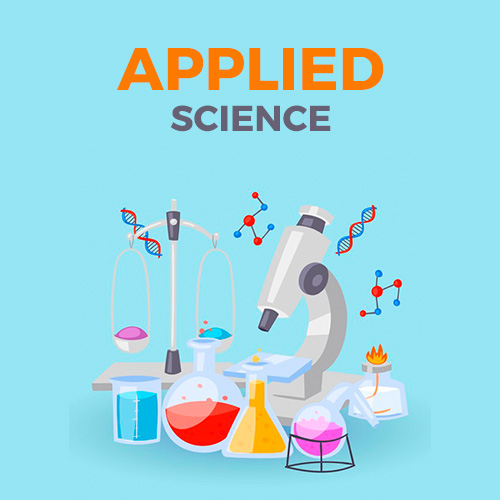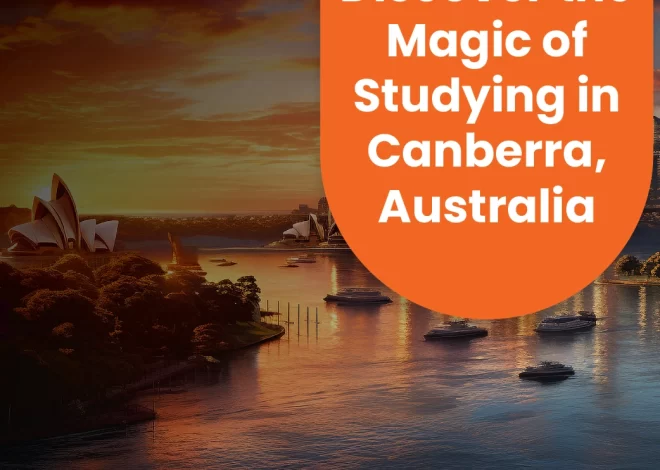
MS IN FUNDAMENTAL/APPLIED/LIFE SCIENCES IN USA
Masters in Applied /Fundamental Sciences
Studying for a Master of Science (MS) degree in Fundamental/Applied/Life Sciences in the USA can be a rewarding and enriching experience. In the United States of America, almost all major universities are offering courses on fundamental/applied/life sciences (here we mean Physics, Chemistry, and Biological science) at Bachelor’s, Master’s, and Doctoral levels also a wide range of universities and research institutions with excellent programs in these fields, providing students with access to cutting-edge research and a diverse academic environment are available. Here are some steps you can follow to pursue an MS in these disciplines:
Universities: Champaign, Rice University, Tufts University, Boston University, Brandeis University, University of California Santa Barbara, and SUNY Stony Brook are a few of the top schools in the field of fundamental, applied, and life sciences outside of Ivy League universities. These colleges are among the most sought-after options for such degrees worldwide due to their world-class research outputs and Noble laureates.
Courses: Astrophysics, gravitational physics, nanotechnology, spintronics, quantum computation, drug chemistry, toxicology, biosensors, biochemistry, biotechnology, bioinformatics, cell sciences, fuel cells, solar cells, cellular biology, green chemistry, genetics, neurobiology, etc. are some of the most well-liked fields of study in these universities. Million-dollar research awards from the National Science Foundation (NSF) encourage academics and graduate students to produce research that makes a significant contribution to the world’s research output. After earning their MSs, most students either pursue a Ph.D. or hunt for employment opportunities in the R&D industries.
Research and Select Programs: Begin by researching different universities and their MS programs in Fundamental Sciences, Applied Sciences, or Life Sciences. Look for programs that fit your unique interests and professional objectives. Think about things like program content, faculty qualifications, research possibilities, and location
Check Admission Requirements: Examine the entry requirements for each program in which you are interested. These specifications often include a bachelor’s degree in a relevant profession, transcripts, recommendation letters, and results of standardized tests. (GRE, TOEFL/IELTS for international students), a statement of purpose, and a resume/CV.
Prepare for Standardized Tests: If required, prepare for and take the necessary standardized tests, such as the GRE (Graduate Record Examination) and English language proficiency tests like TOEFL or IELTS if you are an international student. Adequate preparation will increase your chances of achieving competitive scores. In order to significantly boost their chances of being awarded a Research Assistantship throughout their time as an MS student, students are also actively urged to produce research papers over the course of their Bachelor’s degree.
Submit Applications: Complete and submit your applications to the selected universities within their respective deadlines. Be sure to double-check all required documents and fees.
Financial Aid and Scholarships: Look into financial aid and scholarship opportunities that may be available to help cover tuition costs and living expenses during your MS program.
Visa Process (For International Students): If you are an international student accepted into an MS program, you will need to apply for a student visa (usually an F-1 visa) to study in the USA. Check the U.S. embassy or consulate website for visa application procedures and requirements.
Prepare for Your Journey: Once admitted and visa formalities are completed, prepare for your journey to the USA. This may include arranging accommodation, understanding the local culture, and any other necessary arrangements.
Salary: The starting salary can range anywhere from $50,000 to $80,000 or more in the United States. With more experience and expertise, salaries can increase to six figures or higher. Keep in mind that these figures are rough estimates and can vary significantly based on individual circumstances and job market conditions at the time of your search. For more accurate salary information, it’s best to research job postings and salary surveys specific to your chosen field and location.
Work opportunity: After completing your master’s in applied sciences one can work as a Research scientist, data scientist, health and safety officer, patent examiner, and other such job profiles .
Begin Your Studies: Upon arrival, attend orientation sessions, get familiar with the campus and its resources, and start your studies!
Remember that the process may vary slightly depending on the university and program you choose, so be sure to carefully follow the instructions provided by each institution during the application process. Best of luck with your pursuit of an MS in Fundamental/Applied/Life Sciences in the USA!
MS IN FUNDAMENTAL/APPLIED/LIFE SCIENCES IN USA:
If there is a single most practically important factor that brought about real alteration in life of humans is the quest for learning and understanding new things through the lens of deductible logic dictated by the laws of science. Historically, the whole idea of fundamental and applied science was advanced through primitive ideas possessed by humans about stars, planets, weathers and materials. These ideas, which were graduated to human knowledge, started with the invention of wheel and fast-forward to modern times, our inquisitiveness has resulted into inter planetary travels by spacecraft and more accurate understanding of how things around us acquired mass.
Of late, all well-known academic institutions around the globe offer opportunities to young individuals to learn about fundamental/applied/life sciences through various courses across all educational levels. In particular, currently in United States of America, almost all major universities are offering courses on fundamental/applied/life sciences (here we mean Physics, Chemistry and Biological science) at Bachelor’s, Master’s and Doctoral levels. In order to be considered as an international student in USA for the course of MS Fundamental/Applied/Life Science, a prospective student must complete their bachelor’s degree in the relevant subject, ideally in the same field and, like any other technical subject, they are required to have a valid general GRE test score. Particularly in fundamental/applied/life science, besides having a general GRE score, a student is also strongly advised to take Subject GRE test. Unlike general GRE, a subject GRE is conducted in a country with very limited number of slots. Registration for this test can be done similarly as other GRE/TOEFL exams through ETS website. Although there are universities where it’s not mandatory but even those universities consider the score during application review. In a country like USA a 12+4 years of under graduation is mandatory to apply for MS. Hence Indian students having a B.Sc. (3-year program) degree are required to complete one more year of education that can be met either by pursuing the first year of M.Sc. program or a PG Diploma course to be eligible to apply directly for MS in Fundamental/Applied/Life Science.
As usual, students from non-English speaking countries should also appear for TOEFL / IELTS as a mandatory requirement for MS degree in Fundamental/Applied/Life Sciences. A score of 90 and above in TOEFL or at least overall band of 7 in IELTS should be enough for most of the reputed universities for these programs. As far as academic opportunities in USA are considered for Fundamental/Applied/Life Science courses, there are few hundred universities which run globally renowned Master’s program. Apart from Ivy league institutions, University of Texas at Austin, Carnegie Mellon University, University of Illinois Urbana Champagne, Rice University, Tufts University, Boston University, Brandeis University, University of California Santa Barbara, SUNY Stony Brook are some of the front runners in the world of Fundamental/Applied/Life Sciences. World class research outputs and Noble laureates have made these universities some of the globe’s most popular choices for such courses. In these universities, some of the most popular areas of interests include Astrophysics, Gravitational Physics, Nanotechnology, Spintronics, Quantum Computation, Drug Chemistry, Toxicology, Bio sensors, Bio chemistry, Bio-technology, Bio Informatics, Cell Sciences, Fuel Cells, Solar Cells, Molecular Biology, Cellular Biology, Green Chemistry, Genetics, Neurobiology, etc. Research grants of million of dollars from National Science Foundation (NSF) motivate professors and graduate students to create research output which contributes a major part to the global research output. Post MS, students in general continue with either PhD process or they look for professional opportunities in R&D sectors.
Students who are willing to apply for MS in Fundamental/Applied/Life Science in US universities are strongly advised to start their application process by October if they are planning to join the next Fall. Students are also strongly encouraged to publish research papers during the course of their Bachelor’s degree which considerably increases the chance of winning a Research Assistantship during their stay as a MS student. Meaningful interaction with relevant professors regarding assistantship opportunities do matter a lot.
In a nutshell, flexible academic environment, supercomputing facilities, near perfect student to faculty ratio, opportunities for cross-disciplinary research are some of the key factors why US universities are gaining ever growing popularity among world’s best young minds who are poised to take a step to their dream MS degree.



